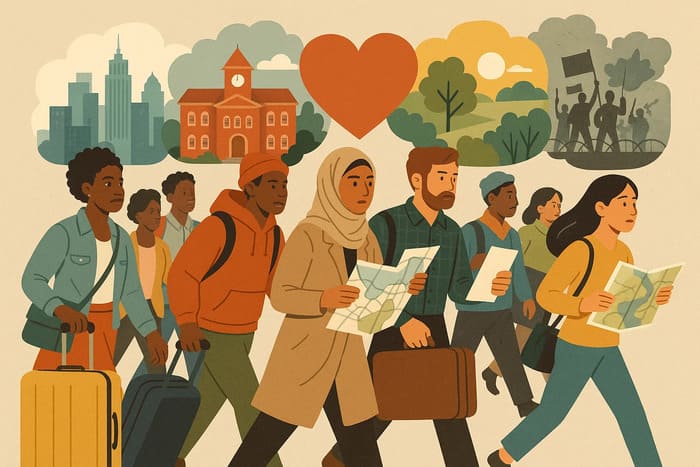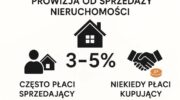Relocation is more than just packing your bags and changing your address. It’s the act of moving from one place to another—sometimes across cities, sometimes across continents. Whether it’s a temporary shift for work or a permanent leap toward a new life, relocation can be voluntary or forced, exciting or unsettling. But no matter the reason, every move carries with it a story, a choice, and a transformation.
At its core, relocation is not just about geography—it’s about identity. When we move, we’re not only changing our surroundings but also reshaping who we are in relation to the world.
A new environment challenges our habits, rewrites our routines, and often forces us to confront questions we hadn’t asked before: What truly feels like home? What am I leaving behind—and what am I searching for? These inner shifts are what make relocation as much a personal philosophy as it is a physical journey.
Push and Pull: Why People Move
People move for many reasons—some are pulled by opportunity, others pushed by necessity. According to global migration data, the top motivations for relocation are typically tied to economic and personal growth. Studies suggest that:
- Work and career opportunities account for around 40% of international relocations.
- Family and relationships motivate about 25% of moves.
- Education drives roughly 10%, especially among younger migrants.
- On the other hand, conflict, war, and persecution are responsible for nearly 15–20% of forced relocations.
- Environmental and climate-related reasons are a growing factor, now influencing about 5–10% of moves globally.
The table below summarizes 10 key reasons why people relocate, split between positive (“pull”) motivations and negative (“push”) pressures that shape human mobility in the modern world.
| Factor | Explanation |
|---|---|
| Love & Relationships | Moving to be with a partner or to start a family in a shared location. |
| Education | Seeking access to better schools, universities, or academic programs. |
| Business | Relocating to start or expand a company in a favorable market. |
| Job Opportunities | Moving for career advancement, new positions, or higher income. |
| Environment | Choosing to live in a cleaner, healthier, or more sustainable setting. |
| War & Conflict | Fleeing danger due to armed conflict or unsafe living conditions. |
| Political Pressure | Escaping regimes with censorship, oppression, or lack of freedom. |
| Economic Crisis | Leaving areas with unemployment, inflation, or poverty. |
| Climate Change | Relocating from regions affected by disasters, drought, or rising seas. |
| Social Instability | Moving away from discrimination, violence, or deep social divisions. |
Relocation Beyond Geography
Relocation isn’t just about moving from one city or country to another—it’s a much deeper transformation. Beyond the logistics of changing addresses lies a shift in mindset, routine, and emotional landscape. When we relocate, we often leave behind not only places, but versions of ourselves.
The familiar symbols of identity—language, habits, relationships—are suddenly reshaped or redefined. In this way, relocation becomes an act of personal reinvention.
It challenges us to rethink who we are, what we value, and how we relate to the world around us. It’s not simply a journey across space—it’s a journey inward.
Relocation in the Modern World
In today’s interconnected world, relocation has become more dynamic, frequent, and accessible than ever before. Technology, remote work, and globalization have opened new doors for people to move across borders with ease.
Unlike the past—when relocation was often permanent and driven by necessity—modern movers are more mobile, flexible, and intentional.
From digital nomads working remotely from tropical destinations to expats relocating for corporate jobs or migrants seeking stability, the modern relocation experience is diverse and evolving.
This global mobility reflects shifting values around freedom, opportunity, and lifestyle.
Modern Relocation: Types and Examples
| Type of Relocator | Description | Example |
|---|---|---|
| Digital Nomad | Works remotely while traveling from place to place, often short-term. | A software developer working from Bali, then moving to Lisbon. |
| Expat (Expatriate) | Moves abroad for a job or long-term opportunity, usually sponsored by employer. | An engineer from Germany living in the UAE for a corporate contract. |
| Skilled Migrant | Relocates permanently for better career prospects or income. | A nurse from the Philippines moving to Canada for a hospital position. |
| Student Migrant | Moves to another country for higher education. | An Indian student studying at a university in the United States. |
| Refugee / Asylum Seeker | Forced to flee home country due to war, persecution, or crisis. | A Syrian family resettled in Germany due to conflict in their homeland. |
| Lifestyle Migrant | Chooses to relocate for a better quality of life, climate, or culture. | A retiree from the UK moving to Spain for sunshine and relaxed living. |
Relocation as a Journey of Growth
Relocation is more than just a physical move — it’s a profound personal and philosophical journey. It challenges us to reflect on who we are, where we belong, and what kind of life we want to build.
Making the choice to move often requires courage, responsibility, and deep self-awareness. It pushes us to let go of comfort zones, face uncertainty, and embrace transformation. But growth rarely happens in stillness — it comes from motion, change, and bold decisions.
So if you’re thinking about relocating, don’t let fear hold you back. The world is wide, and every new place brings new perspectives, connections, and possibilities. Moving is not a step away from safety — it’s a step toward your future.









